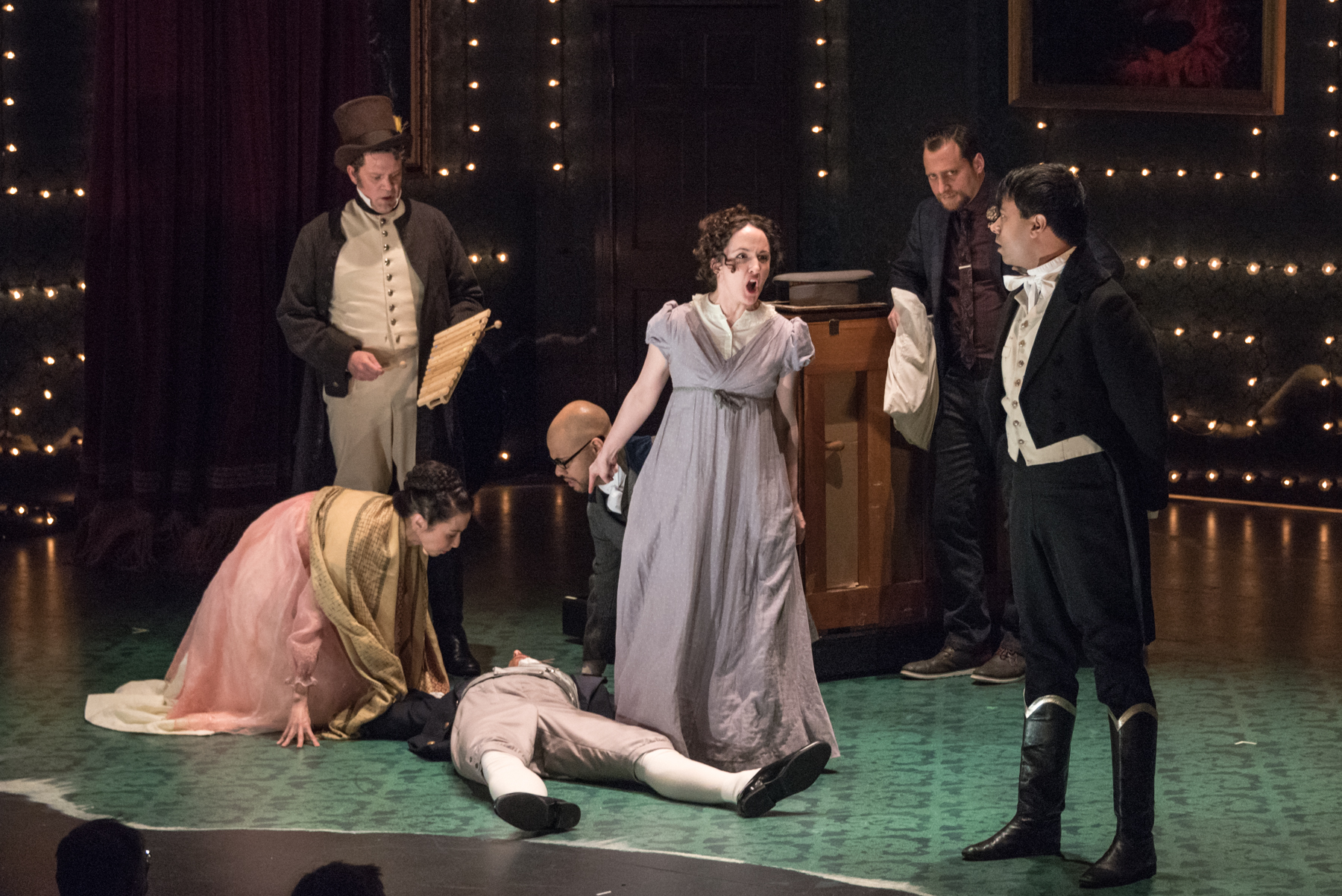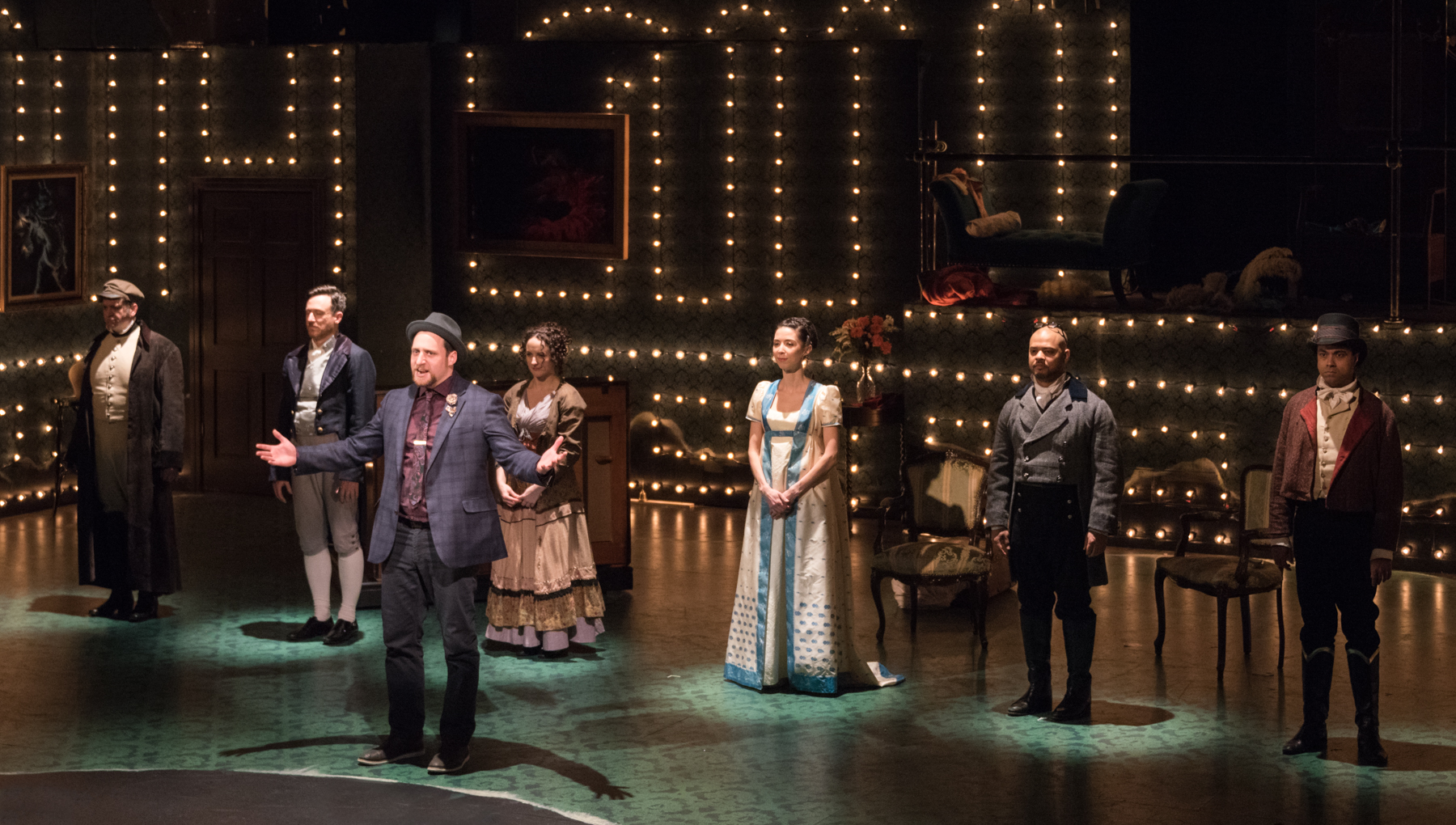Kate Hamill Could Have Been Bikini Girl #2, But Decided to Smash the Patriarchy Instead
by Annie Schiffmann
Photos: Russ Rowland
Way across town (practically in New Jersey) at the Pearl Theatre Co. William Thackery’s 1848 novel Vanity Fair has been adapted for the stage. Similar to Shakespearean productions that resonate this very moment, the whimsical retelling has a very modern sense and sensibility - especially when it comes to gender standards. I spoke with actress and playwright Kate Hamill about how a piece that was written before the Civil War still resonates today.
Feminist Archetypes
Vanity Fair tells the story of a consummate social climber in England who flirts, lies, and cheats her way to a higher social status. Simultaneously, it also follows her best friend who forges a more traditional path. Explains Hamill, "In terms of feminist archetypes, I really wanted to show how the whore and the madonna both have consequences and neither of them are ideal." Hamill gets her point across by using only two women. Men play the rest of the characters - whether male or female. "I felt like it stacked up more neatly if you saw them in a world full of men. Especially when all of the other women in the play enforce patriarchal standards on them: try to get them to obey, judge them, judge their choices.”
Hamill usually follows a rule of thumb where there have to be more roles for women than men in her plays. She is keenly aware of the dearth of shows that center around women. It’s the main reason she began creating plays herself. (for more on actors getting restless with their prospects, read this piece. And this one.) “I was getting really frustrated. I’m getting called in for these parts like Bikini Girl #2 and Long Suffering Silent Girlfriend of Brilliant Male Filmmaker. I really wanted to create work for myself and other people - including other women - in female-centric narratives. I just started doing it."
19th Century and Now
Vanity Fair has been extended twice due to popular demand. Before that, Hamill’s adaptation of Jane Austen’s Sense and Sensibility (where she first teamed up with director Eric Tucker) also had an extended run. Why the interest in stories from the 1800s? “That’s a time when women in particular were feeling the strictures of a class society. And how class oppresses you.” Sound familiar? In referring to revolution and presidential politics she says, “We have someone who - in addition to being a bigot and a misogynist - is also a member of the ruling wealth class and is looking to increase that wealth class. And we’re looking at a lot of anger around that."
Closing Soon and Opening Next
Hamill is exhausted, but happily so. She simultaneously is rehearsing her next piece, an adaptation of Pride and Prejudice (“Once you do one sort of thing people ask you about it. I happen to be playing around in that world for a year or two.") which will come to Primary Stages in November, but first the show heads to the Hudson Valley Shakespeare Festival.
Until then, though, Hamill continues to smash the patriarchy at the Pearl.
Runs through 05/27




